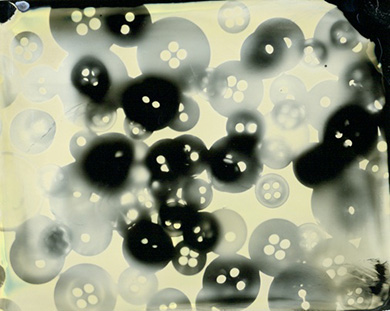


Ralph Ginzburg pissed off a lot of people in the 1960s. He pissed off the postmaster general, who took one look at Ginzburg’s fledgling magazine Eros, and charged him with distributing obscene material through the mail. He pissed off Bobby Kennedy, who indicted him for smut peddling. And he certainly did not endear himself to the Supreme Court, who ultimately upheld his conviction, forever branding him, unfairly, Ginzburg believed, as a pervert in the public eye. In his mind, he was an artist, a provocateur, a boundary- pusher, eager to shatter old norms, or as he liked to say, an unrepentant “brandied fruitcake of a publisher,” a former Esquire editor and Harper’s contributor who liked good writing alongside a little breast, a little pot, a hairy Jerry Rubin in a headband and Chukka boots as centerfold.
And so, just when his haters were at their most fierce, Ginzberg decided to meet their charges head-on. In 1968, he launched a new magazine: Avant Garde, and it was clearly intended to keep the straights pissed off. He put naked pregnant chicks and phantasmagoric pop art nipples on its LP-sized covers. He ran bare asses on the back: “ARE YOU AVANT-GARDE?...OR DERRIERE?” By today’s standards, it all feels sweetly awkward rather than revolutionary, like little boys enthusiastically belting out newly learned naughty words. (In the very first issue, in fact, there is a treatise on the word “fuck,” which manages to simultaneously lament its overuse and happily hurl it about.) Look past the parade of pubic hair, the twined limbs, and there is an insecurity, a vulnerability, even in the midst of all the bare-flesh (or perhaps because of it) that is almost touching, a little sad, people groping for answers in whatever form they can get them.
And they are groping like crazy in Avant Garde #7, looking for ways to reassure a nation unmoored. To recap the events of the past year and a half: MLK has been shot dead, Bobby, Ginzburg’s prosecutor, too. The haze of tear gas from the Democratic National Convention still lingers. Nixon’s in charge now. Soon, everyone will know about the horrors at My Lai. Vietnam drags on and the body count climbs. (My own father will be in country within months.)
Against this backdrop, Avant Garde’s classifieds section offers succinct, almost poetic two-line autopsies of its readership’s searching state of mind:
“Utopian newspaper, 25 cents. Communities forming everywhere. Kerista tribe, PO Box 23294, San Francisco CA 94112.”
“Stoned catalog from the mysterious Psychedelicatessen, 164 Avenue A, NY 10009. 25 cents.”
“Jilala – Ecstatic music of Moroccan dervishes recorder in Tangier by Paul Bowles and Brion Gysin. Send $4 to Trance, PO Box 222, Knickerbocker Station, NY 10002.”
For what Bowles and Psychedelicatessen cannot answer, Ginzburg offers his own prescriptions. There’s an essay extolling the virtues of breast-feeding, almost embarrassingly sincere in its conclusions that all our current woes could be extinguished if only more women used their mammaries as nature intended: “And let us not overlook the harm that bottle-feeding does to civilization – and not just turning out unhealthy, distrustful, dependent, insecure, obese people… There is at least one other way in which bottle-feeding harms civilization. For it is clear that the American male’s childish idolatry of the female breasts is due to the decline of nursing… The female breast has almost always been the object of admiration, but never before has society suffered so much from what the anthropologist Eric John Dingwell calls ‘bosom mania.’”
At this point, let me interrupt and say that we are only about eight or so pages into the issue, and perhaps you are starting to feel cheated. I know I was. What happened to avant-garde? Where’s the unrepentant fruitcake? “Bosom mania”? Really? With the exception of a single wonderfully bizarre line attempting to describe how women feel while nursing -- “ ‘It’s like the effect of two Martinis,’ a breaster told me” -- this seems to be playing it a bit too… straight.
Sure, there’s an essay by Latin scholar Edgar Bunning extolling Petronius’s The Satyricon, including some excerpts that he has translated and made more “colloquial” (read: to make the raunchy bits extra raunchy -- and to give the art department a chance to commission an orgy drawing). Yes, there is a poem by French writer Jean Genet, graphic in its depiction of the “rough trade.”
But ultimately, that’s just a front. Look closely and there is more innocence on display here than audacity, more hoping (and wishing) than knowing. It’s as if Avant Garde is trying its hardest to reassure itself that everything is going to turn out alright; rather than faithfully recording the present, like the cinema verite filmmaker who is the subject of one of the issue’s essays, the magazine’s chief preoccupation seems to be with convincing us of the wonders of our future. Like when writer Peter Schjeldahl (working his way toward The New Yorker’s masthead) ruminates on Jerry Rubin, “bushy-haired and grizzly-bearded” king of the Yippies: “He is an inspired connoisseur of chaos, instrumental in anti-authority extravaganzas ranging from the March on the Pentagon to the Grand Central Yip-Out to the bloody Chicago confrontations. Yet he comes through it all cheerful as ever, complacent in his conviction that revolution is on its way, insisting only that the revolution ‘has to be fun.’” (See, we’re all having fun! It’s all going to turn out great!).
But wait -- here comes a swerve:
“It occurs to you,” writes Schjeldahl, “that he must be crazy. ”
It’s this last line that gets me -- that questioning. It’s such a slip of the mask, and it hints at a nagging doubt, a queasy uncertainty that Avant Garde seems desperately trying to write against: What if this isn’t actually fun? What if things don’t turn out OK?
And in fact they don’t: Within three years, Ginzburg will fold Avant Garde, as he heads off to federal prison to serve his eight-month sentence for promoting obscenity. He will insist, up to his death in 2006, that the charge prevented him from ever becoming as successful as he could have been, should have been, in the literary world.
It’s interesting, then, to consider that one of the things that most pissed off the straights about this particular issue of Avant Garde was not the bare boobs, or bawdy Satyricon translations, or orgy drawings, but a quiet little meditation on folk singing by Supreme Court Justice William O. Douglas.
It actually became evidence in an attempted impeachment of Douglas, led by Gerald Ford, a congressman at the time. “The article itself is not pornographic, although it praises the lusty, lurid, and risqué along with the social protest of left-wing folk singers,” Ford had said.
But he had it all wrong. In reality, the essay spoke to sadness and fear, to rootlessness and uncertainty: “Through railroad yards, across wheat fields, and up and down the orchards of the Pacific Northwest, mostly sad songs echoed, songs that Woody Guthrie later called ‘hurt songs.’” Songs that captured the raw honesty of how things really felt at the time -- however painful and scary and un-fun -- not how we wanted them to be.

